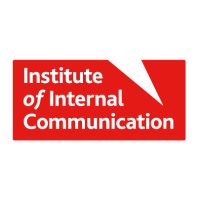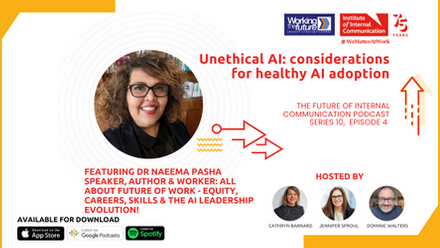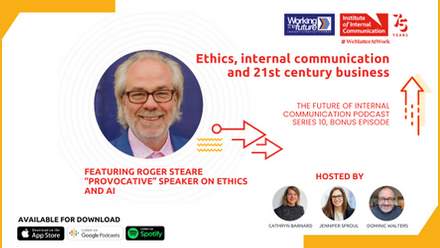"We are not makers of history. We are made by history."
Without this starting to sound like a pose-y kind of statement you might drop at a dinner-party to try to impress, this quote from Martin Luther King Jnr is on my mind.
I'm not often given to recalling my A-Level history but a recent – and very exciting – IoIC meeting triggered the memory.
You see, IoIC is a key partner for a new and ambitious academic research project.
The research is into the institutional history of internal communication in the UK and will be the very first to provide an historical study of IC in UK organisations from its origins in the 1880s to the present day.
Researchers from the University of Exeter and Brunel University have secured a substantial grant to carry out the three-year project.
IoIC's support and our amazing archive with thousands of documents, Council minutes, and store of employee publications that date back to IoIC's foundation more than 70 years ago was paramount to the team securing the grant.
The research team also have access to the archives of around 20 leading UK organisations such as Royal Mail, Shell, Unilever, Boots, the BBC, John Lewis, and GSK as well as the British Library and the Industrial Society.
When IoIC CEO Jennifer Sproul and I met recently with research leaders Michael Rowlinson who is Professor of Management & Organizational History at the University of Exeter Business School, and Dr Michael Heller of Brunel University business school, we talked at length about why the history of IC is relevant for today.
For all IC's importance and longevity, there is no comprehensive history. Despite the fact that we can trace its origins back to the 19th century, it's interesting that IC is seen by many leaders and organisations (and even some practitioners) as a relatively 'new' practice.
Yet organisations such as Unilever and Boots recognised the importance of informing – and engaging – their employees back in the late 1800s by investing in house journals.
By studying archives of company publications, the research team will be able to fill in the historical gap between those early days of IC and to track how organisational and business practices have emerged, become accepted and changed, influencing social environments.
This will enable them to chart the emergence and impact of industrial relations, the rise of the digitisation of IC and the growing importance of voice and inclusion.
And they will look at how professional bodies such as the IoIC, which was founded in 1949, consolidated our profession, and review the relationship between professional bodies in prescribing best practice, and the organisations that adopted them.
So this all got me thinking about that Martin Luther King quote, "We are not makers of history. We are made by history."
From what I can remember from those A-Level history classes, there are different interpretations of the quote. He may be saying that people are shaped by the world around them, that we are who we are because of the history we have lived, and don't get to change that.
But historians say that you have to read the whole sermon, not just the quote in isolation. The full text indicates that King is expressing a different message. He says that people are capable of making history and should have belief in their power to change its path.
There's no doubt that internal communications has been 'made' by history.
Our profession started within organisations as a way of reporting on current information. It was largely sharing top-down communication, but it built community - a sense of extended family and brand advocacy.
In my own time in comms with Marks & Spencer in the 1980s, for example, internal communication was founded on the same paternalistic approach to the employer/employee narrative. Internal publication stories were of new products, store news and a regular rhythm of staff recognition, long servers, hatches, matches and dispatches. Nothing very challenging or non-corporate.
But our profession has also contributed as a 'maker' of history. We have had an increasingly persuasive influence on 'organisational remembering' of the past and been part of how organisations have used IC over the years to legitimise themselves to employees. The study will be looking at how IC has grown in more modern times to be a shaper of strategic messages, an amplifier of employee voice and as a recognised practice that's gone well beyond producing the community-binding company publication.
That's why this research project and its associated workshops, book and public exhibition is being wholly – and actively – supported by the IoIC, why we're opening up our own 'organisational memory' and archives to the research team.
By better understanding IC's historical role, we have an enhanced awareness of our legitimacy, purpose and value.
And this learning from the past will surely give us valuable insight into making sure we continue to evolve and influence as a practice and as a profession, to benefit the employees and organisations in which we work over the next 100 years or so.




